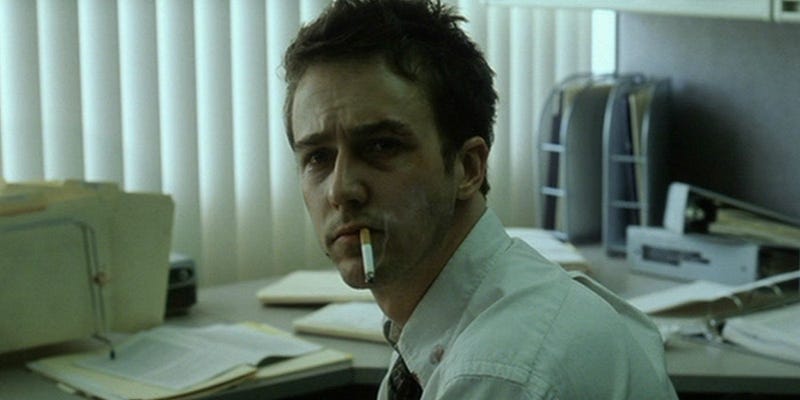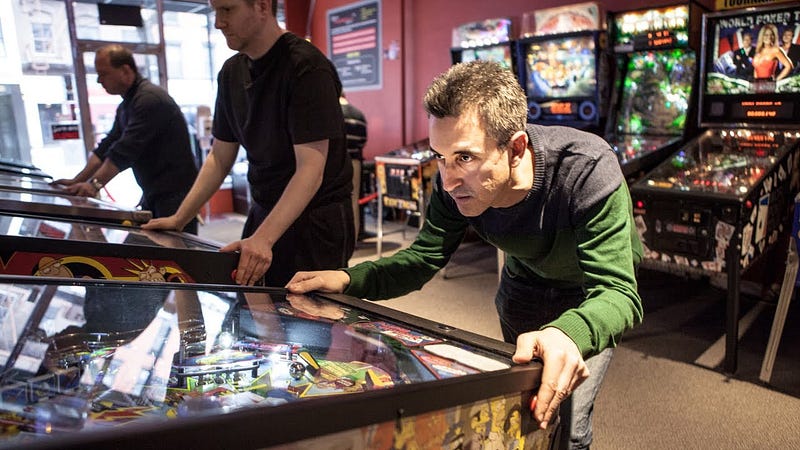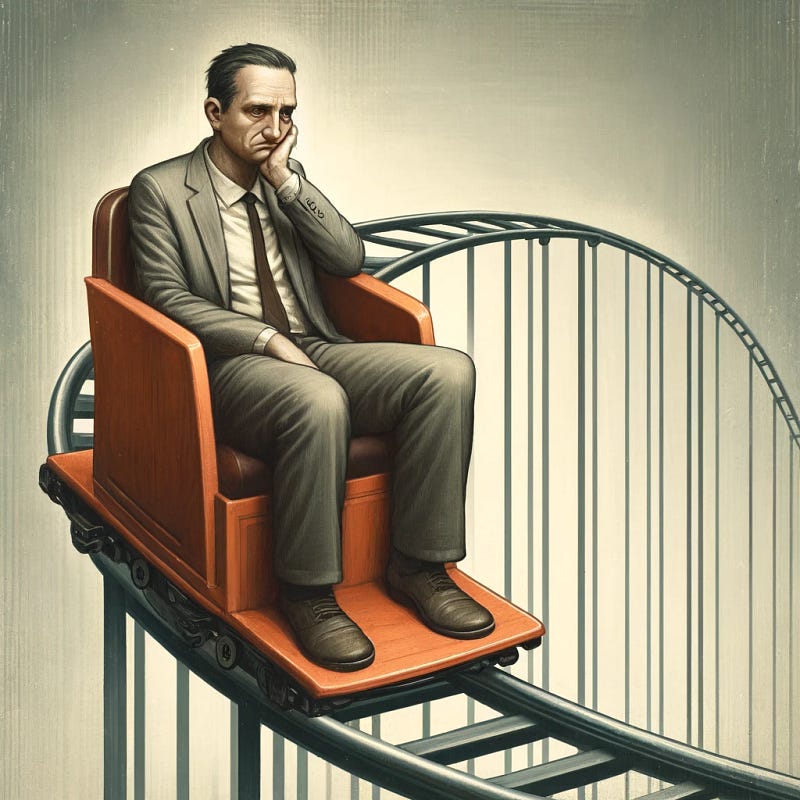# Breaking Free from the Cycle of Inactivity: Embrace Change
Written on
Chapter 1: Understanding the Coaster Phenomenon
The term "coaster" doesn't refer to those plastic mats you place under your coffee mugs. It describes individuals who let life pass them by. These are the folks who drift along, never truly evolving. They appear carefree, basking in the sun, yet beneath that relaxed exterior lies a troubling reality—a profound lack of initiative.
Many coasters once thrived in their youth, basking in past accomplishments, yet now they merely exist, propelled by external circumstances.

The archetype of this phenomenon is often seen in individuals who peaked during their high school years. This is a well-known concept, often depicted in memes, where someone's life fails to improve after adolescence. Picture the classic high school jock who still relives the glory of his past victories, believing he’s still the celebrated captain of the football team, even though those days have long since passed.

While he may have enjoyed his moment of fame, eventually, that glory fades, and he finds himself alone in his memories. By clinging to his former triumphs, he avoids taking necessary steps forward, coasting through life until he realizes he’s made little progress. He may attempt to venture into new endeavors, but often finds it more comforting to remain in familiar territory, where he can still feel like a big fish, even as that space shrinks around him.

Another common scenario involves individuals who feel utterly powerless in their lives. They may have bosses dictating their actions, unfulfilling romantic relationships, or simply lack control over their circumstances, feeling like a pinball tossed around by external forces.

These individuals find themselves stuck in a challenging situation. Unlike the high school star, who at least has experienced success, those who feel oppressed by their circumstances often spiral downward. Their dissatisfaction grows, yet the fear of change paralyzes them. Having been passive for so long, they may not even recognize that transformation is feasible.
Worse still, this habit of inaction deepens over time. The more one avoids taking steps forward, the more ingrained the habit becomes. To escape this cycle, drastic measures are often required, but sadly, many choose to do nothing and endure their struggles until the end.

What causes this predicament? While there’s no definitive answer, many of these individuals may not have learned independence early on. They often rely heavily on others—parents, friends, colleagues—creating a false sense of security. However, this reliance is unsustainable. People change, move on, and eventually, those who once provided comfort may no longer be available.

This learned behavior often stems from being surrounded by overly controlling influences. The path to breaking free from the "coaster" mindset is straightforward.
Chapter 2: Steps to Break the Coaster Habit
To liberate yourself from this cycle, the key is to embrace effort. Rather than avoiding challenges, confront them head-on. Transition from apathy to taking the reins of your life and become a proactive individual.
The first video titled "Siren's Curse Looks Awesome... but also WEIRD!! - Cedar Point's New 2025 Tilt Roller Coaster!" explores the thrill and excitement of new experiences, much like the journey of breaking free from the coaster mindset.
The second video, "NEW in 2025 - Siren's Curse!" highlights innovation and the thrill of embracing change, reinforcing the importance of taking action in life.
In conclusion, the journey to overcome the coaster mentality starts with a simple choice: to act. By shifting from a passive observer to an active participant in your life, you open the door to growth and fulfillment. Thank you for taking the time to read this,
Godfrey
Click here for a free guide on content creation.